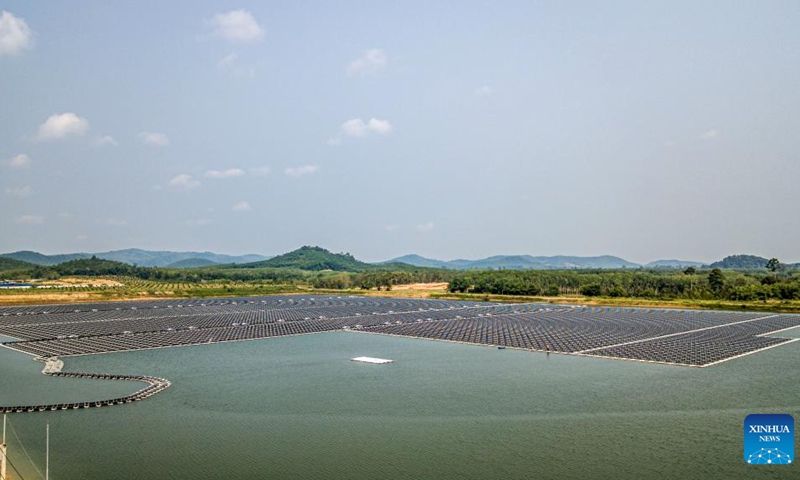Yellow-band disease ravages Thailand’s coral reefs

Aerial photo taken on April 11, 2022 shows the solar floating project in Rayong, Thailand. The solar floating project in Rayong province was constructed by Banpu Company of Thailand with support of Chinese technology company Huawei.(Photo: Xinhua)
Underneath the calm turquoise waters off eastern Thailand, a rapidly spreading disease is killing coral over vast stretches of the sea floor, and scientists fear it may be getting worse because of climate change.
Yellow-band disease, named for the color it turns coral reefs before destroying them, was first spotted decades ago and has caused widespread damage to reefs in the Caribbean. There is no known cure.
But it was detected for the first time off Thailand's eastern coast only in 2021, near the popular tourist city of Pattaya, and has already spread over roughly 600 acres (240 hectares) of the sea.
"I haven't seen anything like this before," said marine scientist Lalita Putchim, of Thailand's Department of Marine and Coastal Resources.
"Everywhere we went we saw it, and we expect to see more of it as we go."
Scientists believe overfishing, pollution and rising water temperatures because of climate change may be making the reefs more vulnerable to yellow-band disease.
"When the coral is infected with this disease, it just dies," Lalita said.
The loss of coral could have a devastating impact on the ecosystem, the reef is "like a forest" sustaining massive amounts of life, and its death could eventually impact humans too, she added.
On one research trip near Samaesan Island in the Chonburi district, Lalita and her team donned diving gear on a boat before heading underwater.
They photographed infected coral, taking measurements as well as photographs while harvesting samples to study later.
Thai marine authorities are using social media to track reports of infected reefs, and have also asked the public to report any sightings of affected coral.
Thai researchers have also been aided by local volunteers, as well as business owner Thanapon Chaivanichakul, who collected underwater photographic evidence.
"I was shocked when I first saw it," Thanapon told AFP, using a series of expletives to describe the disease.
AFP


